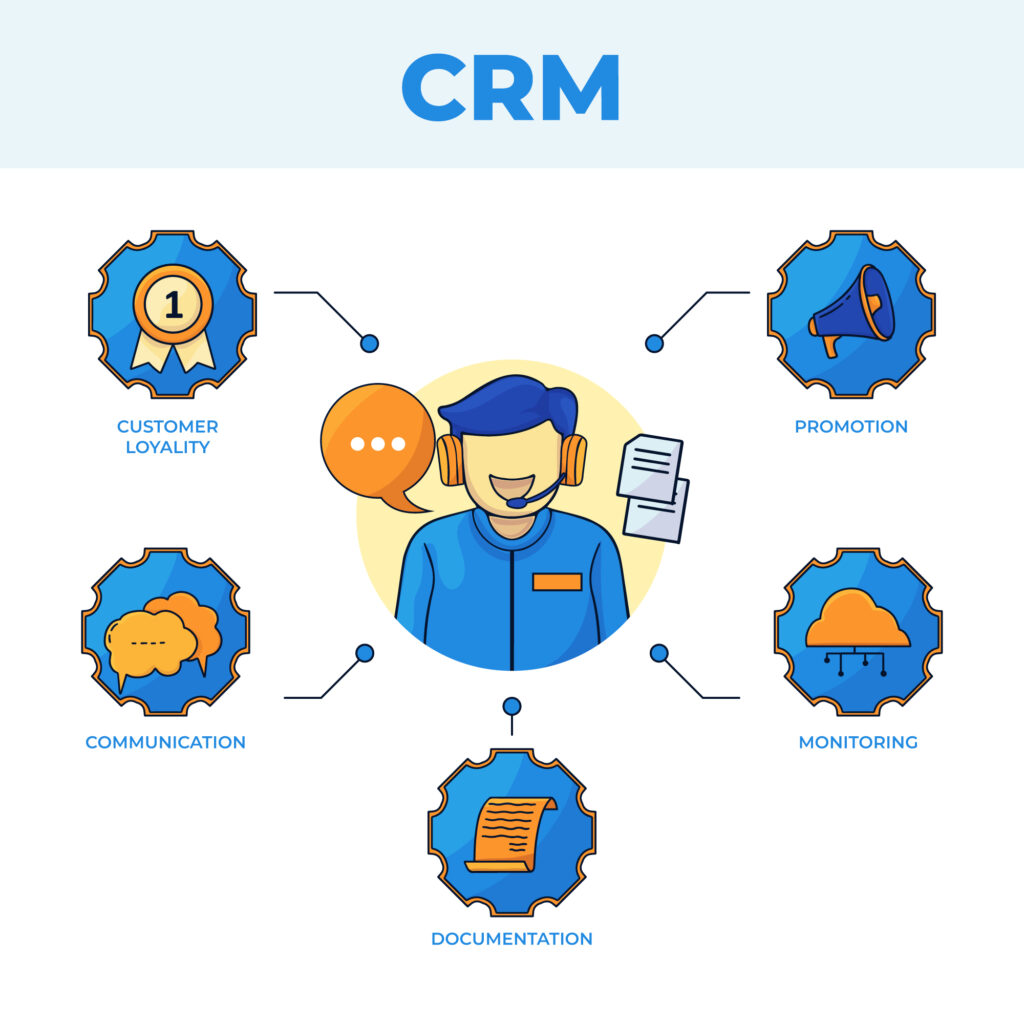In today’s digital-first world, companies are rapidly shifting from manual, repetitive workflows to smarter, automated solutions. Businesses are not only looking to optimize customer interactions but also streamline internal processes. At the core of this transformation are CRM automation tools, which have become essential for organizations that want to stay competitive, agile, and customer-focused.
This article explores marketing automation, the rise of SaaS tools, and why CRM automation tools are the backbone of successful business operations. We’ll dive into their features, benefits, top tools on the market, and strategies for effective implementation.
Understanding Marketing Automation
Marketing automation is no longer a luxury; it’s a necessity. Companies now handle massive amounts of customer data, and without automation, managing this information becomes overwhelming. Marketing automation platforms allow businesses to nurture leads, schedule campaigns, analyze customer behavior, and send personalized communications—all without requiring constant human intervention.
In the past, marketing required countless hours of manual labor: drafting emails, segmenting contact lists, and tracking responses. Today, automation tools can handle these repetitive tasks, enabling marketing teams to focus on strategy and creativity. More importantly, marketing automation ensures consistency, so customers experience personalized engagement across channels like email, social media, and SMS.
When integrated with CRM automation tools, marketing automation becomes even more powerful. The data collected during marketing campaigns flows directly into the CRM, giving sales and customer service teams deeper insights into customer behavior. This synergy allows businesses to move from reactive to proactive customer engagement.
The Role of SaaS Tools in Modern Business
SaaS (Software as a Service) tools have revolutionized how businesses operate. Instead of purchasing expensive on-premise software, companies can now subscribe to cloud-based platforms that are accessible from anywhere. This flexibility makes SaaS tools especially attractive for startups, remote teams, and growing organizations.
SaaS platforms cover a wide range of business functions: project management, HR, accounting, sales, and most importantly—CRM automation tools. The SaaS model allows companies to scale their operations without investing heavily in IT infrastructure. Updates, maintenance, and security are handled by the provider, allowing businesses to focus on growth instead of technical issues.
The rise of SaaS tools also means that automation is no longer reserved for enterprise-level companies. Even small businesses can access powerful automation features at affordable prices, leveling the playing field and creating new opportunities for innovation.
What are CRM Automation Tools?
CRM (Customer Relationship Management) systems are designed to help businesses track, manage, and analyze interactions with customers and leads. CRM automation tools take this a step further by automating repetitive tasks such as:
- Sending follow-up emails
- Logging customer interactions
- Assigning leads to sales representatives
- Tracking customer activity across touchpoints
- Scheduling meetings and reminders
In essence, CRM automation tools allow businesses to manage relationships at scale without sacrificing personalization. For instance, instead of manually sending reminders to potential clients, automation can ensure they receive timely and relevant communications based on their behavior.
These tools serve as the central hub of customer information. When combined with marketing automation and other SaaS platforms, they create a holistic system where every department—from sales to support—can access real-time insights and deliver better customer experiences.
Key Benefits of CRM Automation Tools

1. Improved Customer Engagement
Automating communications ensures that customers receive timely, personalized messages. Whether it’s a welcome email, a product recommendation, or a follow-up after a purchase, automation keeps customers engaged without overwhelming your team.
2. Increased Efficiency
Repetitive tasks like data entry, follow-ups, and reporting can drain productivity. With automation, these processes run in the background, allowing employees to focus on higher-value activities like closing deals or improving customer service.
3. Data Accuracy
Manual data entry is prone to errors. CRM automation ensures that customer data is captured consistently and accurately, which is critical for making informed business decisions.
4. Sales and Marketing Alignment
CRM automation tools bridge the gap between marketing and sales. Leads generated through marketing campaigns are automatically scored, prioritized, and handed off to the right sales reps, ensuring no opportunities slip through the cracks.
5. Scalability
As your business grows, manually managing thousands of leads and customers becomes impossible. Automation scales with your company, handling larger volumes of interactions without compromising quality.
Essential Features of CRM Automation Tools
When choosing a CRM automation tool, it’s important to evaluate its features. Some must-have functionalities include:
- Lead Scoring and Assignment: Automatically score leads based on behavior and route them to the right sales rep.
- Workflow Automation: Trigger tasks, reminders, and notifications based on predefined rules.
- Email and SMS Automation: Send personalized messages at the right time in the customer journey.
- Analytics and Reporting: Gain insights into campaign performance, sales conversions, and customer engagement.
- Integrations: Seamlessly connect with marketing platforms, e-commerce systems, and customer support tools.
- AI-Powered Insights: Many modern CRM automation tools now incorporate AI to predict customer behavior and suggest next best actions.
Top CRM Automation Tools in 2025
With so many options available, choosing the right CRM automation tool can feel overwhelming. Here are some of the top solutions businesses are leveraging in 2025:
1. HubSpot CRM
HubSpot offers a robust free CRM with automation capabilities that scale as your business grows. Its strength lies in the seamless integration between marketing, sales, and service hubs.
2. Salesforce Sales Cloud
Salesforce remains the industry leader in CRM. Its automation tools are highly customizable, making it ideal for large enterprises with complex processes.
3. Zoho CRM
Zoho provides an affordable solution with powerful automation features. It’s particularly popular with small and medium-sized businesses.
4. Pipedrive
Pipedrive focuses on sales pipeline automation, making it easy for teams to track deals and automate repetitive follow-ups.
5. Freshsales (Freshworks)
Freshsales combines CRM automation with AI-driven insights, helping businesses predict customer needs and optimize sales workflows.
6. Monday CRM
Known for its visual project management style, Monday.com’s CRM offers automation features that streamline communication and collaboration.
Implementing CRM Automation Tools Effectively
Simply purchasing a CRM automation tool is not enough; proper implementation is critical. Here are some best practices:
Define Clear Objectives
Before deploying automation, identify what you want to achieve. Do you want to increase lead conversion rates, reduce manual work, or improve customer satisfaction?
Start Small
Begin with automating simple tasks like follow-up emails or meeting reminders. Once your team adapts, gradually introduce more complex workflows.
Train Your Team
Your CRM is only as effective as the people using it. Invest in training sessions to ensure your employees understand how to leverage automation effectively.
Integrate with Existing Tools
Ensure your CRM connects seamlessly with your email marketing, e-commerce, and customer support platforms. Integration prevents data silos and improves collaboration.
Monitor and Optimize
Regularly review performance reports to identify areas of improvement. Automation is not set-and-forget; it requires continuous optimization.
Challenges of CRM Automation Tools
While the benefits are undeniable, CRM automation tools also come with challenges:
- Complex Setup: Configuring workflows and integrations can be overwhelming, especially for small businesses without dedicated IT teams.
- Cost: While SaaS tools are affordable, advanced CRM automation platforms can become expensive as you scale.
- Adoption Issues: Employees may resist change or fail to use the tools effectively without proper training.
- Data Overload: Too much automation without strategy can lead to irrelevant or excessive customer communication.
Overcoming these challenges requires thoughtful planning, proper training, and a focus on customer-centric automation.
Future of CRM Automation Tools
The future of CRM automation tools lies in AI, machine learning, and predictive analytics. Businesses will not only automate tasks but also anticipate customer needs before they arise. Imagine a CRM that recommends the best product to pitch, predicts churn risk, or automatically generates personalized offers.
Additionally, voice assistants, chatbots, and omnichannel support will become standard. Customers will expect seamless interactions whether they connect via phone, email, chat, or social media.
The integration of CRM automation tools with emerging technologies like IoT and blockchain will further enhance data security, personalization, and transparency.
Conclusion
Marketing automation and SaaS platforms have reshaped the way businesses operate, but CRM automation tools stand at the heart of this transformation. By automating repetitive tasks, improving customer engagement, and aligning teams, these tools enable businesses to scale effectively while delivering personalized experiences.
For companies that want to thrive in today’s competitive environment, investing in CRM automation tools is no longer optional—it’s essential. The future belongs to businesses that can harness automation not just to work faster, but to work smarter.













